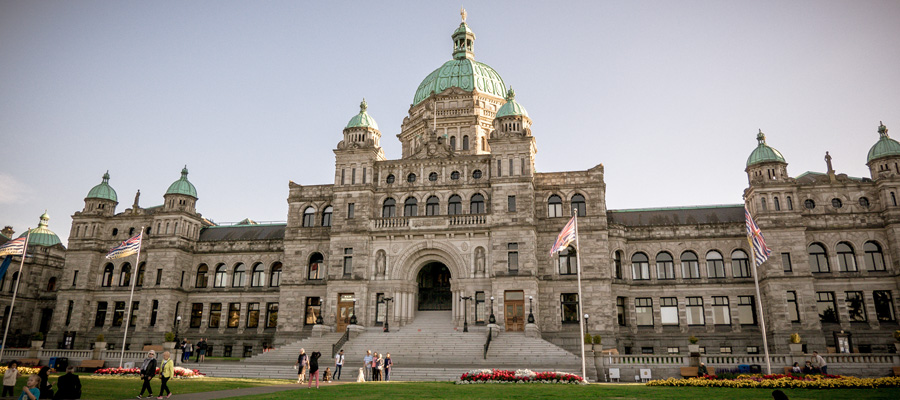BC Budget 2021 could be the most important budget in a generation

BC Budget 2021 will be tabled on April 20th, in the middle of the COVID-19 third wave. It is an opportunity for the new provincial government to not only support people and businesses through this phase of the pandemic—but also to shape a transition to a more resilient, inclusive and sustainable economy.
The pandemic revealed what CCPA has pointed out for years—that an obsession by provincial governments to limit debt and keep taxes low came with a steep price.
The COVID-19 crisis brought gender, racial and economic inequalities into sharp focus—and in many cases deepened them. It’s time for a different approach.
The good news is that there is near-universal agreement that active public sector investment is critical to economic growth at this stage of the pandemic, and that the risks of spending too little far outweigh the risks of spending too much. The fiscal challenge now facing the provincial government is to ensure that new spending helps tackle systemic inequalities and promotes economic activity in the public interest.
In BC, top-level indicators of employment and economic activity point to a fairly strong job market recovery compared to the rest of Canada. BC is the only province where there were more people working in mid-March 2021 than pre-pandemic (Feb. 2020), while Canada saw an employment decline of 1.5%. Of course, these statistics predate the increased public health restrictions introduced late last month and thus do not capture the jobs and hours lost as a result.
More importantly, these encouraging top-line statistics hide deep inequalities that will become a roadblock to the recovery unless explicitly addressed. The COVID-19 recession has disproportionately impacted low-wage workers, and particularly those who experience intersecting inequalities related to gender, race, Indigenous identity, and disability, among others. These impacts will worsen without government intervention—not only to avoid deepening poverty and marginalization within these communities, but to ensure that recovery plans set the foundation for a just and equitable economy.
Racialized communities continue to experience higher levels of unemployment, higher representation in low-wage jobs with few if any benefits, and higher levels of financial insecurity despite any economic gains made so far in the recovery. The seemingly strong jobs numbers in BC and the continuing federal supports available to the unemployed are not sufficient to alleviate the financial difficulties experienced by many British Columbians, including a disproportionately large share of racialized workers (Figure 1). In February 2021, nearly a third of racialized British Columbians between the ages of 15 and 69 lived in households that found it “difficult” or “very difficult” to meet basic financial commitments in the last four weeks, compared to 17% of their non-Indigenous, non-racialized peers. Statistics Canada was unable to produce comparable statistics for Indigenous British Columbians.
Notably, the overall level of financial insecurity in BC (22% among the total non-Indigenous population) is among the highest in Canada. Only Alberta and Ontario report higher levels of financial insecurity in February 2021 (25% and 23%, respectively).
What investments are needed in BC Budget 2021?
Creating the conditions for a different sort of prosperity, one that is not based on exclusion and marginalization, requires a more equitable distribution of resources and power. This will take a combination of provincial budget measures paired with changes to laws and policy, and will require embedding ongoing meaningful engagement with those directly affected by policy changes. The following seven priorities for Budget 2021 will help get us there.
1. Large-scale public investments in the care economy
The care economy refers to the entire range of health, education and community care services, including child care, elder care and supports for people with disabilities. The care economy has been getting more attention as a result of the pandemic, and rightfully so—it is a critical component of our basic infrastructure that enables the larger economy to run smoothly. The pandemic has also reminded us that the workforce in the care economy is dominated by women and racialized workers whose work is massively undervalued and underpaid.
BC Budget 2021 should prioritize faster implementation of $10-a-Day Child Care, fixing long-standing gaps and failures in our seniors care system, greatly expanding access to affordable mental health and addiction supports, more accessible post-secondary education and skill training for adults who want or need to shift their career paths, and stable funding for charities and non-profits so they are adequately resourced to both meet urgent needs and work to address systemic challenges and inequities. Importantly, new investments should support public and not-for-profit ownership and delivery of services, given the considerable evidence that for-profit long-term care and child care is more expensive and often poorer quality.
In addition to providing valuable services, these investments represent key job creation opportunities for the types of workers who suffered the worst labour market impacts of the pandemic—youth, women and racialized workers. BC Budget 2021 must also ensure that all new jobs supported with public funds pay decent wages and provide good working conditions and benefits.
2. An ambitious program of infrastructure investment, including in affordable housing, transit and digital connectivity
In addition, this budget presents the opportunity of a generation to expedite badly-needed and long-overdue infrastructure investments, including a large-scale affordable housing build-out (in particular in non-market housing), ambitious municipal infrastructure renewal and public transit expansion local governments have been asking for, climate action initiatives, expanded broadband and cell phone connectivity in rural and remote areas and on First Nations reserves, as well as investment in programs that help low-income households afford Internet service and digital devices to improve digital equity.
3. Labour market reform to strengthen workplace rights and protections, and proactively enforce them
Labour market reform is the government’s lever to increase the proportion of better-paying jobs with decent working conditions and benefits such as paid sick days. While many needed reforms to workplace rights have no direct provincial budget implications, one item that does—and that is long overdue—is significantly boosting proactive monitoring and enforcement of workplace rights, including through the Employment Standards Branch of the Ministry of Labour and through the Labour Relations Board. Both of these bodies remain underfunded, leading to backlogs and delays for workers who have experienced injustice in the workplace and are seeking redress.
4. A reshaping of our broad income and social support system to close the gaping holes brought into sharp focus by COVID-19
Although much of the policy focus during the pandemic has been on workers and businesses impacted by public health restrictions, now is not the time to lose sight of those who aren’t able to support themselves through work and were already living in poverty before the pandemic started. Simply put, BC’s income assistance and social support system is fundamentally broken.
A recent detailed analysis by the BC Basic Income Panel confirms what advocates have been saying for over a decade: it is not a system per se but a patchwork of programs that is complex to navigate, hard to access due to structural and administrative barriers, and provides inadequate support to people who are often in dire need. Further, the extensive and inconsistent (among various programs) eligibility testing strips those seeking support of their dignity. The BC Basic Income Panel final report makes a number of specific and actionable recommendations for transforming current programs into a system that adequately supports all who need it. The BC government ought to begin implementing these recommendations with Budget 2021.
5. Assurance that funding support for business promotes economic activity in the public interest
All new funding support for business announced during the third wave of the pandemic and for the recovery must come with conditions attached to ensure that public funds are used to promote economic activity in the public interest and not just commercial interests. Conditions could include stronger protections for current workers, for example by extending a right of recall, that is to say a right for workers that have been laid off because of the pandemic to be re-hired at their old jobs once business picks up at the same wages, benefits and seniority levels that they had prior to being laid off. Conditions could also include paying above minimum wage or providing benefits, such as paid sick leave.
6. Tax fairness reform to curb income and wealth inequality
While there is no need to fear large deficits at this time, BC Budget 2021 should capitalize on opportunities to improve tax fairness that would generate new public revenues while also curbing income and wealth inequalities, which have worsened during the pandemic. For example, introducing a new high-income tax bracket could ensure that those who have done well financially despite COVID-19 disruptions pitch in more to cover the costs of supporting those who lost their jobs or businesses. In addition, replacing the home owner grant—a deduction on property tax available on all principal residences in BC—with an income-tested housing grant that would benefit owner and renter households alike could alleviate some of the housing affordability challenges compounded by the recent real estate market gains.
7. A boost to the capacity of BC’s public service
And finally, BC Budget 2021 must boost the capacity of BC’s public service, which was gutted over the past two decades, when its policy research, monitoring and evaluation capacity was largely outsourced to high-priced consulting corporations. The pandemic has required government leadership on an extraordinary scale, and we need to bring the same ambition to other key challenges like climate change.
As UK economist Mariana Mazucatto has argued, the role of government needs to be fundamentally rethought to meet the pressing challenges of our time. Governments can and should actively shape the economy and society with their policy decisions, alongside businesses and non-profit and civil society organizations. Stronger public service capacity is key to effectively playing that role.
BC Budget 2021 could easily be the most important budget in a generation and it will test BC’s commitment to economic justice, gender equity, anti-racism and meaningful reconciliation.
Topics: COVID-19, Economy, Employment & labour, Provincial budget & finance, Taxes


